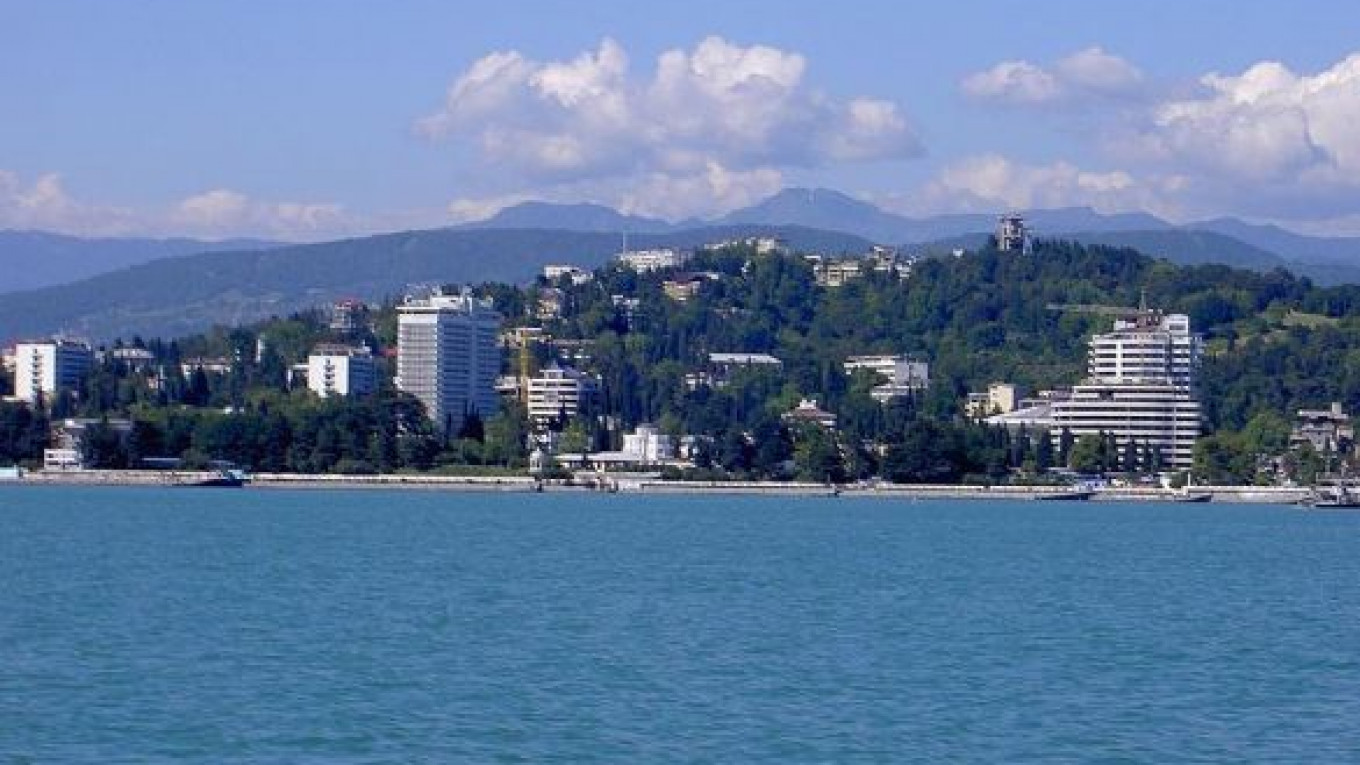A senior Border Guards Service official on Monday moved to calm fears about security at the upcoming Winter Olympic Games in Sochi, telling reporters that his agency was studying best practices from foreign governments.
"We're undoubtedly working together and will continue to work together. We're working with border guards from other countries and studying the experience of former Olympic host nations," said Nikolai Rybalkin, deputy head of the service, Interfax reported.
He also said several thousand border guards were receiving special training for the Olympics.
Two deadly bombings last week in the Dagestani capital Makhachkala, 600 kilometers away, highlighted fears about Russia's ability to prevent attacks on the Olympics, especially given Sochi's proximity to the North Caucasus, home to a smoldering insurgency with Islamist overtones.
President Vladimir Putin has ordered law enforcement to do everything possible to secure the Olympics, which take place in February, but Rybalkin's remarks were a reminder that Russia has also received pledges of assistance from Britain and the United States.
This month, FBI director Robert Mueller promised to open agency data to the Russians, and British Prime Minister David Cameron announced partially renewed cooperation between the two countries' security services, ties that were suspended after the 2006 killing of Russian dissident Alexander Litvinenko, who died in central London after drinking a cup of radioactive tea.
Russia badly needs security help from the United States, Europe, and the Middle East, given what he called "general instability in the Middle East and its links to the Caucasus," said Alexei Malashenko, a Caucasus expert at the Moscow Carnegie Center.
"In Syria, there are lots of people who are so very ambitious. They could participate in terrorist activities in Sochi to punish Russia," he said by telephone on Monday, adding that Russian security services, "don't know which side the threat may come from."
Russia has antagonized anti-government rebels in Syria by backing President Bashar Assad in the country's civil war, which is estimated to have killed more than 70,000 and displaced millions. There are widely believed to be radicals from the North Caucasus fighting on the rebel side.
U.S.-Russian counterterrorism links have been under scrutiny since the Boston Marathon bombing last month, which U.S. investigators say was carried out by two ethnic-Chechen brothers who were reportedly inspired by North Caucasus jihadists.
Russian leaders were keen on striking a balance between securing the games and "transforming [Sochi] into a prison," and between reassuring and alarming potential visitors, Malashenko said.
"They are afraid. They are afraid of everything: the Caucasus, the possibility that nobody will come because of the threat, etc," he said.
Russia's security efforts received a seal of approval last month from the International Olympic Committee, which is "very satisfied" with preparations for the games, IOC president Jacques Rogge said during an event in Peru, Itar-Tass .
He praised "good cooperation" with Russian security services, adding that security has been a top IOC priority since the Munich Olympics tragedy in 1972, when 11 Israeli athletes and coaches were killed after being taken hostage by a radical Palestinian group.
Contact the author at j.earle@imedia.ru
A Message from The Moscow Times:
Dear readers,
We are facing unprecedented challenges. Russia's Prosecutor General's Office has designated The Moscow Times as an "undesirable" organization, criminalizing our work and putting our staff at risk of prosecution. This follows our earlier unjust labeling as a "foreign agent."
These actions are direct attempts to silence independent journalism in Russia. The authorities claim our work "discredits the decisions of the Russian leadership." We see things differently: we strive to provide accurate, unbiased reporting on Russia.
We, the journalists of The Moscow Times, refuse to be silenced. But to continue our work, we need your help.
Your support, no matter how small, makes a world of difference. If you can, please support us monthly starting from just $2. It's quick to set up, and every contribution makes a significant impact.
By supporting The Moscow Times, you're defending open, independent journalism in the face of repression. Thank you for standing with us.
Remind me later.






